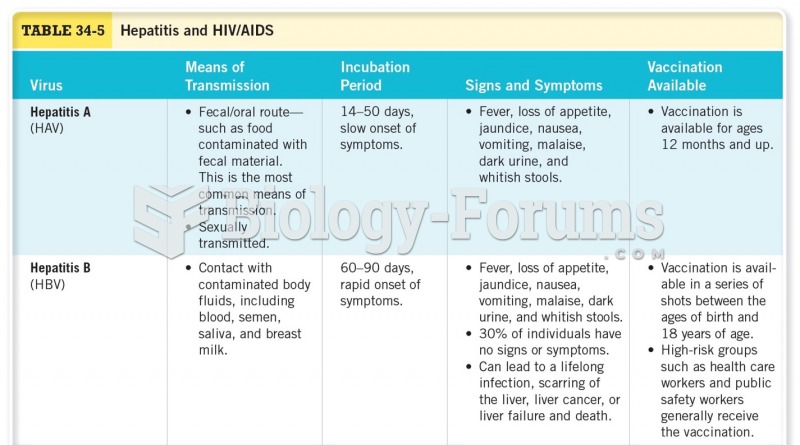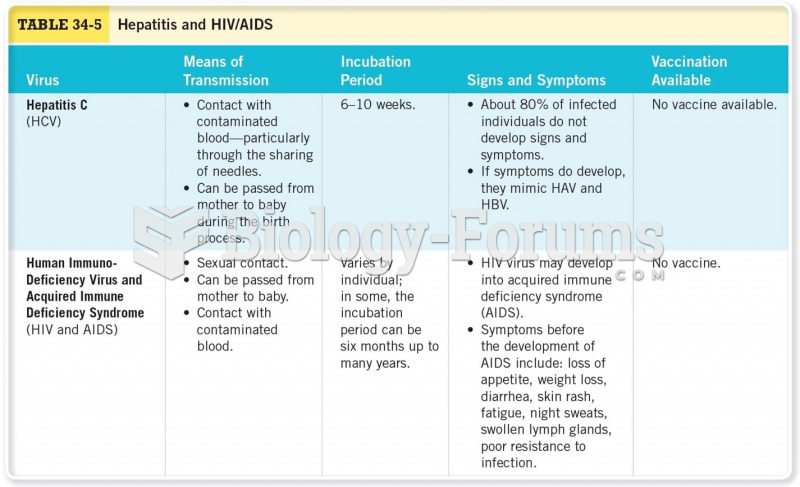|
|
|
A good example of polar molecules can be understood when trying to make a cake. If water and oil are required, they will not mix together. If you put them into a measuring cup, the oil will rise to the top while the water remains on the bottom.
Patients who have undergone chemotherapy for the treatment of cancer often complain of a lack of mental focus; memory loss; and a general diminution in abilities such as multitasking, attention span, and general mental agility.
Increased intake of vitamin D has been shown to reduce fractures up to 25% in older people.
More than 34,000 trademarked medication names and more than 10,000 generic medication names are in use in the United States.
On average, someone in the United States has a stroke about every 40 seconds. This is about 795,000 people per year.







